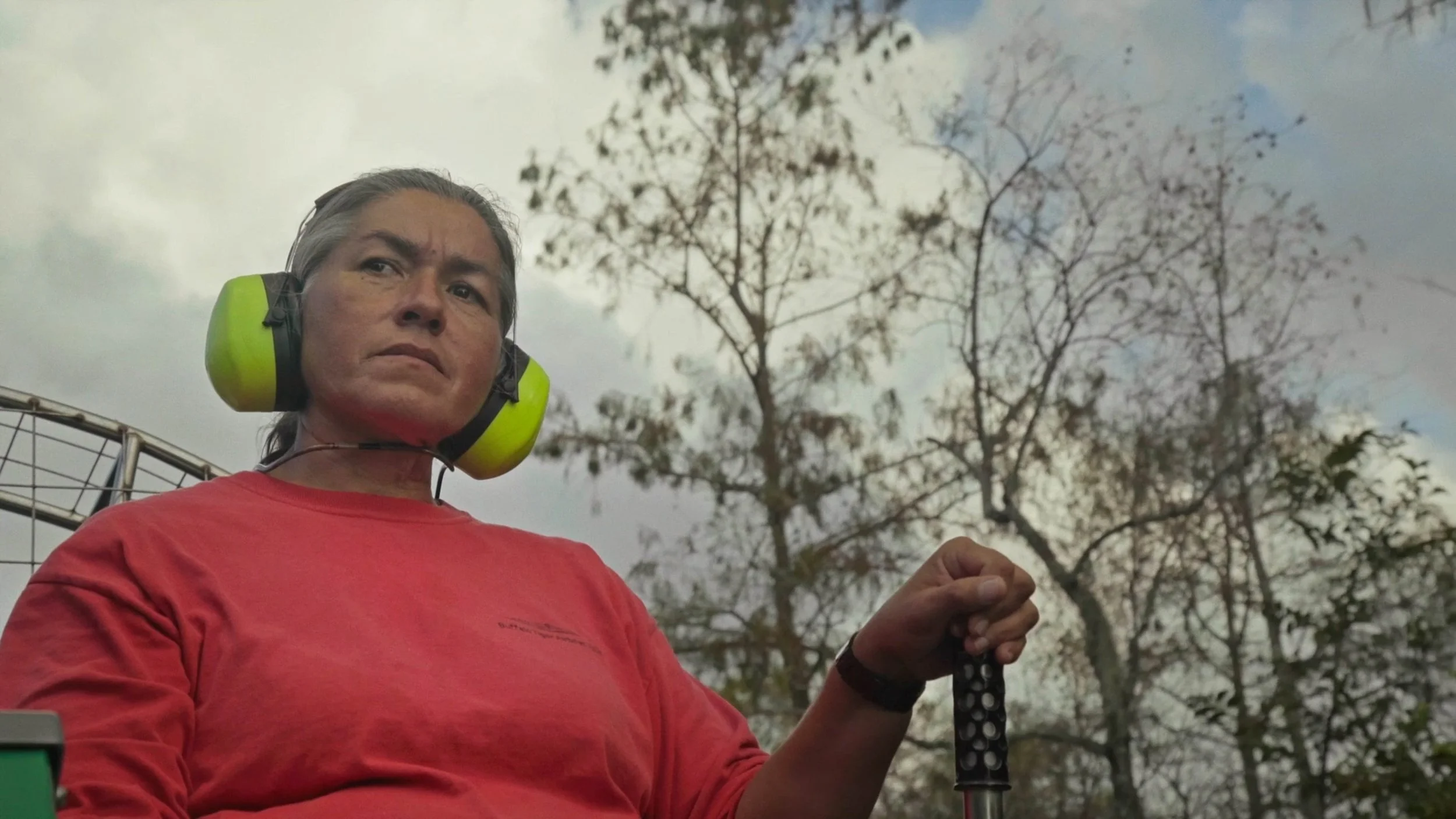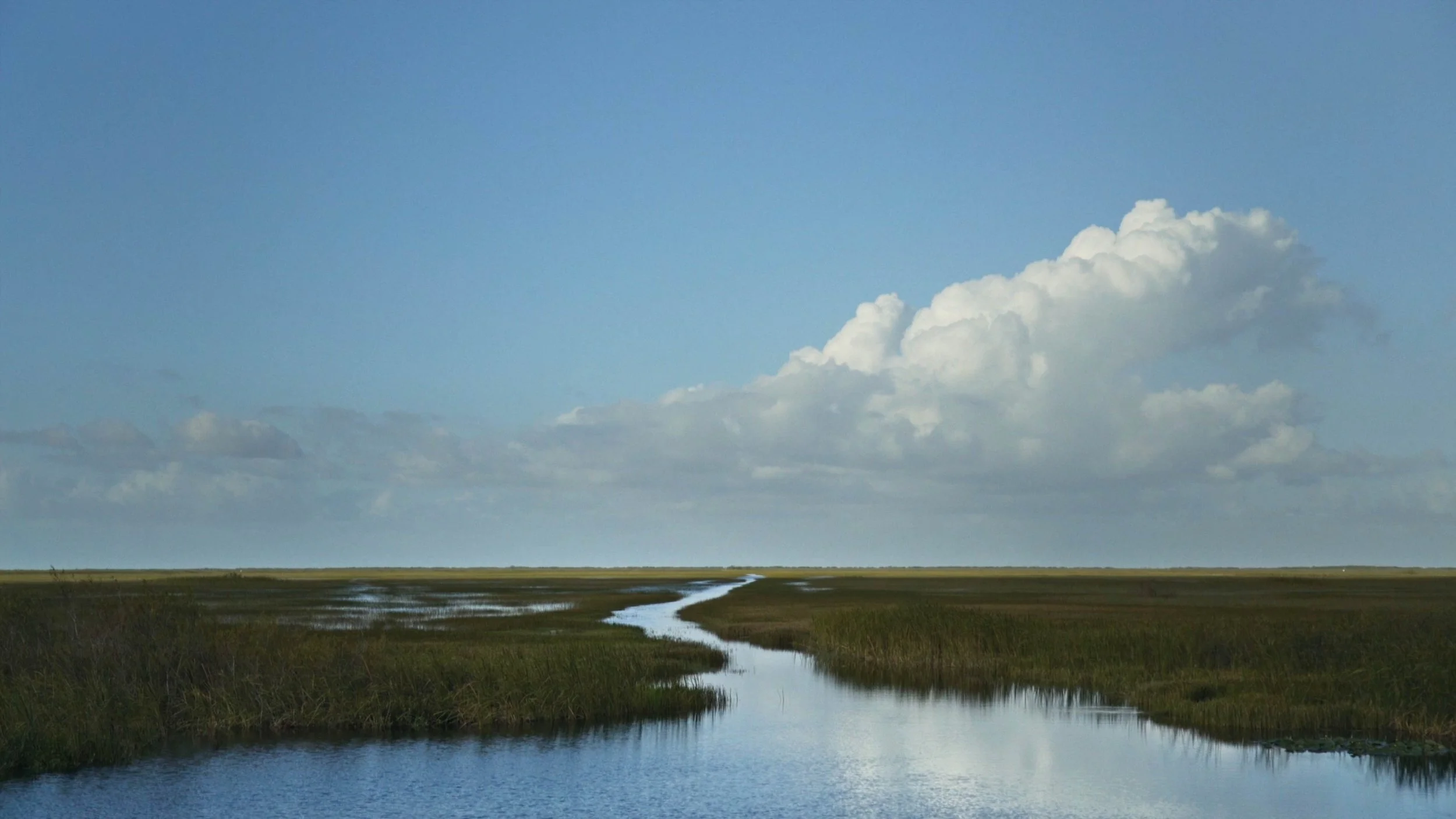“River of Grass” Paints a Haunting Portrait of Floridian Nature
In 1947, Marjory Stoneman Douglas wrote Rivers of Grass, which would be the most influential book of her career. She was a suffragette, a journalist, and a fierce conservationist. Douglas was born in Minnesota, but visited the Tampa area of Florida when she was four years old. In 1915, at twenty-five, Douglas moved to South Florida. While many now think of Florida as quite populated, only about 5,000 people lived in Miami when Douglas arrived. It wasn’t until the 1940s that she fell in love with the natural wonder of the Everglades. Her book sold out its first printing in just a month, and now, almost eighty years later, it lends its title to another urgent piece of media about the Everglades. Directed by Sasha Wortzel, River of Grass is a documentary about Douglas, the region, and the way forward.
Wortzel grew up in Southwest Florida and now resides in New York City, but a place like the Everglades never really leaves you. River of Grass is a homecoming for Wortzel and an exploration of Douglas’ life and work. In the present, Wortzel documents the fight by Indigenous people to preserve the water. Heavily featured in the documentary is Miccosukee educator and activist Betty Osceola, who leads Prayer Walks, among countless other means of advocacy, in the Everglades. Wortzel blends her story with that of Douglas and Osceola in a dreamlike fashion, moving in and out of various time periods to show how this area of Florida has both changed and stayed the same. What unites these three women is the living and breathing Everglades, a magnificent part of our world that has captured the imagination for generations.
Courtesy of Sasha Wortzel and Walking Productions
“There are no other Everglades in the world” is the opening line of Douglas’ book. It’s a haunting statement when you consider the consequences of what that could mean. Every year, the quality of life in the Everglades deteriorates because of human activity. Compromised health of the Everglades was once seen as a necessary expense for the growth of Miami, but it’s this short-sighted approach that harms us all today. The Everglades are responsible for drinking water in Florida, yet they’re seen as a hindrance to human expansion. All national parks are under threat of being leveled into something considered more “useful.” Flat land is good for business. You can always build a mall or a factory on land if it’s flat, but where does that leave us? Wholly devoid of natural wonders that inspire, excite, and provide ecological necessities to all species. Rivers of Grass, both the book and the documentary, fervently argues that the Everglades are not a useless swamp, that there is beauty and purpose within them.
Courtesy of Sasha Wortzel and Walking Productions
Wortzel’s Rivers of Grass has a poetic, rhythmic nature to it, a lulling cadence that puts the viewer under a spell. Even those who have been guilty of calling Florida a swamp can see the strange beauty of the Everglades. It’s a piece of nature we can’t find elsewhere, but beyond its rarity, it is life. Creatures and plants call this area home, and who are humans to believe we should have a say in how a river flows? Even though we often feel we can cheat nature by capturing, harnessing, and terraforming it to meet our every desire, that’s just not the case. The consequences of our actions will always come back to us, and it’s likely we won’t be ready.
“I remember nature always creeping in,” says Wortzel about her childhood in Southwest Florida. Residents treat the rising waters in Miami as a problem to be dealt with, but they don’t consider the fact that they’re a byproduct of the way the Everglades have been mistreated. Rivers of Grass is beguiling in its natural beauty and heavy on the soul when it addresses what humans have done to our planet. It’s a plea for conservation, one that existed long before Worztel’s camera started filming.
support your local film critic!
~
support your local film critic! ~
Beyond the Cinerama Dome is run by one perpetually tired film critic
and her anxious emotional support chihuahua named Frankie.
Your kind donation means Frankie doesn’t need to get a job…yet.
Follow me on BlueSky, Instagram, Letterboxd, YouTube, & Facebook. Check out Movies with My Dad, a new podcast recorded on the car ride home from the movies.


